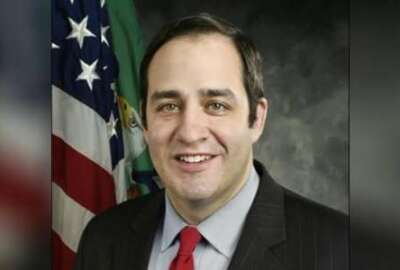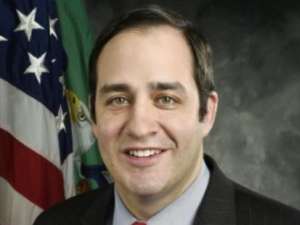
For FDA, blockchain means faster ID management and safer mangoes
The Department of Health and Human Services already uses blockchain in its acquisition shop to buy bulk items more cheaply, but now the Food and Drug Administration...
Best listening experience is on Chrome, Firefox or Safari. Subscribe to Federal Drive’s daily audio interviews on Apple Podcasts or PodcastOne.
The Department of Health and Human Services already uses blockchain in its acquisition shop to buy bulk items more cheaply, but now the Food and Drug Administration sees it as a tool to manage threats to the global food supply chain.

Frank Yiannas, the FDA’s deputy commissioner for food policy and response, said the agency looks to use blockchain to pinpoint the source of food safety concerns in a matter of minutes, not days.
As a former vice president for food safety at Walmart and director of safety and health at Walt Disney World Company, Yiannas said the distributed ledger technology makes a perfect match for a global and decentralized food system.
“I can assure you we’re not chasing blockchain technology just because it’s cool, it’s in the news and it makes stock prices go up. But I do believe it’s a good solution for the future. This is why I’ve been pursuing this holy grail of trying to create a digital food system and greater traceability and transparency,” Yiannas said Wednesday at the American Council for Technology and Industry Advisory Council (ACT-IAC)’s emerging tech conference.
FDA’s push toward tech-driven food safety stems from a multistate outbreak of E. coli in November. The agency urged the public to avoid eating romaine lettuce, and requested restaurants and grocery stores to pull it from kitchens and shelves. It took several days for the FDA to track the contamination to a few farms in California.
“The damage that that does to consumer trust is hard to really fully measure,” Yiannas said. “And while the food system is pretty safe, unfortunately, these incidents happen.”
In response to that incident, Yiannas and FDA Commissioner Ned Sharpless released a statement in April calling for a “new era of smarter food safety” in which the agency leverages data to track food at every point in the supply chain.
“It’s not a slogan. It really is a different way of thinking about how we solve our food safety challenges that remain,” Yiannas said.
During his time at Walmart, Yiannas led a proof of concept demonstration where the company was able to scan a package of mangoes and identify its source within two seconds. Under the previous paper-based system, it could’ve taken weeks to trace its origin.
Related Stories

The price is right? HHS expects AI will save $2 billion in smarter bulk purchases
“I believe if government steps up and says, these are the standards, the data attributes that have to be traced, it makes it easy for private solutions to scale and not have to create their own standards,” Yiannas said.
HHS seeks blockchain partnership with defense community
But the FDA is only the latest component within HHS that has found uses for blockchain.
Last December, the agency’s blockchain procurement tool, HHS Accelerate, got its authority to operate (ATO) and now uses real data from five contract-writing systems and more than 100,000 contracts to identify bulk purchases of everyday items, like copy paper and medical examination gloves, and make sure all of HHS’s components are paying the lowest possible price for them. That contract data covers nearly $25 billion in annual spend.
But HHS Chief Information Officer Jose Arrieta has bigger plans for HHS Accerlate. His office looks to partner with the Defense Information Systems Agency on a pilot where users use a wearable device or a mobile phone to track behavioral information that can verify identity at the edge of a network.
“They have the wireless device, they have the behavioral capability to actually determine identity with a high-level confidence score. Now they need a network of nodes to test that,” Arrieta said about the pending project, adding that he expects to meeting with DISA officials later this month.

If successful, Arrieta said the pilot could help first responders in the field more easily connect to their secure networks without the need for multifactor authentication.
HHS is also in talks with the Army and the Air Force to replicate or invest in HHS Accelerate. The services, Arrieta said, see potential in using blockchain to ingest, organize and securely share data among multiple users. He told Federal News Network that HHS would have more details on the Army and Air Force partnership within a few weeks.
“For those of you that don’t think blockchain can work, it’s actually working. It’s actually working at scale, simple as that,” Arrieta said.
Copyright © 2025 Federal News Network. All rights reserved. This website is not intended for users located within the European Economic Area.
Jory Heckman is a reporter at Federal News Network covering U.S. Postal Service, IRS, big data and technology issues.
Follow @jheckmanWFED




